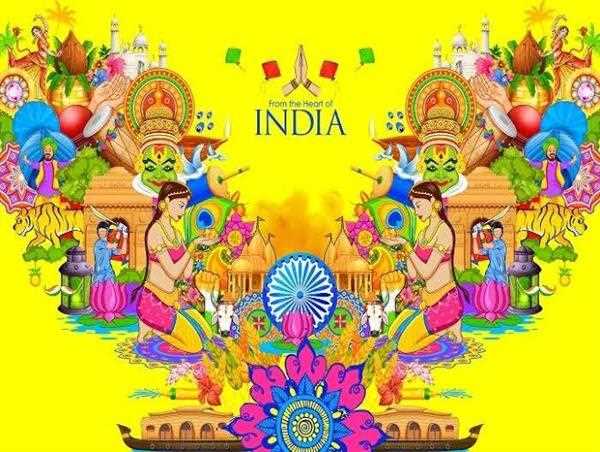
Indian heritage has made profound and diverse contributions to world culture across various fields, leaving an indelible mark on human civilization. From ancient times to the present, India has gifted the world with a rich tapestry of intellectual, spiritual, artistic, and scientific achievements. Here are some of the significant contributions of Indian heritage that have had a lasting impact on global culture.
One of the most notable contributions of Indian heritage is the development and dissemination of spiritual and philosophical traditions. India gave birth to Hinduism, Buddhism, Jainism, and Sikhism, which have deeply influenced the spiritual landscape of the world. These traditions have provided profound insights into the nature of existence, human consciousness, and ethical living, fostering a global appreciation for introspection, mindfulness, and compassion.
Indian heritage has also made remarkable contributions to the field of mathematics. Ancient Indian mathematicians, most notably Aryabhata, Brahmagupta, and Bhaskara, made significant advancements in algebra, trigonometry, and the decimal numeral system. The introduction of zero as a placeholder and the decimal system revolutionized mathematics and paved the way for modern numerical notations and calculations.
The concept of yoga, originating from ancient Indian philosophy, has had a transformative influence on global culture. Yoga, both as a physical exercise and a spiritual discipline, has gained immense popularity worldwide for promoting physical health, mental well-being, and mindfulness practices. Today, yoga studios and practitioners can be found in nearly every corner of the globe.
Indian classical music, with its intricate melodies and rhythmic patterns, has captivated audiences around the world. The ragas and talas of Indian music have inspired musicians and composers globally, leading to the fusion of Indian classical elements with various musical genres. The sitar maestro Ravi Shankar, along with other Indian musicians, played a pivotal role in introducing Indian classical music to the Western world, influencing prominent musicians like The Beatles and contributing to the evolution of contemporary music.
Indian cuisine, with its vibrant flavors and diverse regional dishes, has also left an indelible mark on global culinary traditions. Indian spices, such as turmeric, cumin, and cardamom, have found their way into kitchens worldwide, enhancing the flavors of countless dishes. The popularity of Indian cuisine has led to the establishment of Indian restaurants globally, showcasing the diversity and richness of Indian culinary heritage.
The field of Ayurveda, an ancient system of medicine originating in India, has significantly contributed to global wellness practices. Ayurvedic principles emphasize holistic well-being, personalized treatments, and natural remedies. The incorporation of Ayurvedic practices, including herbal medicine, massage, and yoga, has had a profound impact on complementary and alternative medicine worldwide.
In the realm of literature, Indian heritage has given birth to masterpieces such as the Mahabharata, the Ramayana, and the works of Rabindranath Tagore. These literary gems have transcended cultural boundaries, inspiring readers and writers alike with their timeless themes of morality, love, and self-realization.